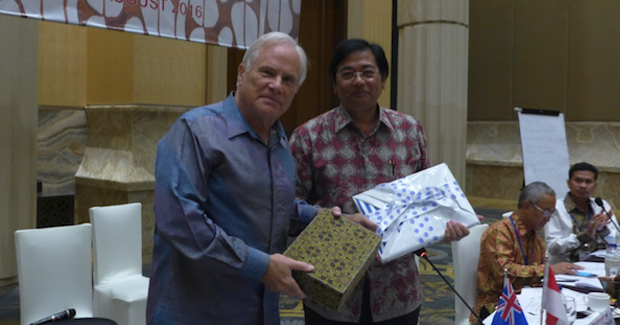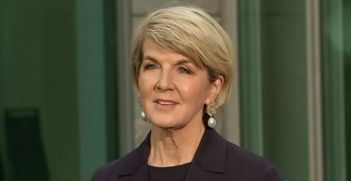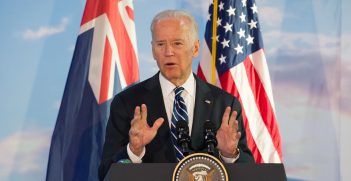Shifts in Australia-Indonesia Relations

Since 2011, Indonesia has transformed from a regional leader to a global influencer; it has strengthened economically and gained stability from the consolidation of its democracy. However, Australian perceptions of Indonesia have not changed to reflect these shifts. For the bilateral relationship to achieve its promise, leaders in each sector need to take ownership and act as role models to drive positive action.
Having been involved since the first Indonesia-Australia Dialogue was announced as a prime ministerial/presidential initiative to build better relations during President Susilo Bambang Yudhoyono’s visit to Australia, it is interesting to reflect on what has changed in relations between the two countries since 2011. This period has seen significant shifts each making it imperative for Australia to adjust to a new relationship with its ever-stronger neighbour.
In the third Indonesia-Australia Dialogue in Yogyakarta last month, there was broad agreement on the importance of the bilateral relationship and acknowledgement that it cannot afford long periods of crisis. From the Australian perspective, there was a sense of urgency regarding the relationship: there is a window for Australia to engage with a rising Indonesia, its closest powerful partner; if it fails to engage, it is Australia that will suffer. Australia has to adjust to a new relationship with Indonesia based on three shifts: economic, geopolitical and political.
First, there has been a significant economic shift which is still underappreciated by many Australians. The old stereotypes of Australia as a rich country and Indonesia as a poor one have been changed by a shift in the relative importance of the economies. After 25 years of uninterrupted economic growth, Australia now has to deal with a downturn. By contrast, there is a sense of optimism in Indonesia built on economic growth. Indonesia is projected to rise to as high as a top 4 economy; by contrast Australia may remain top 20 or slip to top 30.
Second, there is a larger geopolitical shift with the gradual decline of the United States in political and economic strength. In Indonesia, Australia is seen primarily as a part of a West, now in decline. Indonesia, which historically has had a lower profile in foreign policy, has transformed from a regional leader to a global influencer; it has become a nation ready to play a role in the new world order. Indonesia has much to offer as member of the G20, Organisation of Islamic Cooperation, leading member of ASEAN and founding member of the non-aligned movement.
Third, in parallel there has been a political shift where the two countries have swapped positions: Indonesia has gained stability from the consolidation of its democracy while Australia has experienced a period of volatility and now has a more confused political situation where Australian political debate may become more erratic and unpredictable. While not as pronounced as in some other Western countries, there is the pull of populism in Australia from groups in society that feel left behind.
These shifts will require leadership from both countries. Australia needs leaders at national level who are not frightened by the changes and see these as an opportunity. According to the ANU’s Greg Fealy at the Third Indonesia-Australia Dialogue, “We need politicians who are informed about Indonesia beyond the next deal.” There is also the need for second-track and grassroots support.
There remains a significant issue of perceptions between the countries. There are problems in the way that Australians see Indonesia, particularly given declining levels of Indonesia literacy in Australia. The New Colombo Plan is an example of building understanding through people-to-people contact. Digital communication is a key to influence.
For business, there is untapped potential. Because of Indonesia’s economic trajectory, Indonesian businesspeople haven’t had to look outside Indonesia to grow. At the same time Australian businesspeople have not always seen the opportunities: only 2-3 per cent of the countries’ trade is with each other. Australia invests more in New Zealand than Indonesia. As both countries shift from being fundamentally exporters of commodities there will be more opportunities for complementarity: whether in agriculture, food, health, education and financial services or investment by Australian superannuation funds. According to Blackmores CEO Christine Holgate at the dialogue, “It’s such a big opportunity on our doorstep”. There needs to be a willingness to take risk by Australian and Indonesian companies to achieve significant returns. Successful conclusion of negotiations for the Indonesia Australia Comprehensive Economic Partnership Agreement (IACEPA) will assist in harnessing this potential.
In innovation, science and technology, there is real potential. International scientific collaboration can help enhance prosperity and solve global problems, whether through university consortiums, cooperative research centre partnerships or the new Indonesia Australia Science Innovation Fund. High end science and technology can help break down the old images of Australia.
Both the media and the social and cultural realm were identified as areas of great potential, especially in promoting greater understanding. Australia and Indonesia have shared values of pluralistic democracy. People-to-people contact is positive and can be deepened; in times of natural disaster Australian and Indonesian citizens have recognised their shared humanity and offered support.
On regional and global issues, there is significant potential for tangible collaboration between Indonesia and Australia, for example in the G20, the Indian Ocean Rim Association, through the Bali Process, in the South Pacific and in responding to the changing role of China in the region and how it impacts on both countries. While the two countries’ thinking has been shaped by different strategic perspectives, the established schedule of annual leaders’ meetings, meetings of foreign and defence ministers and trilateral dialogues with other countries mean there are many opportunities to discuss what Australia and Indonesia can do together in the region and in global economic and strategic policy.
Australia and Indonesia will always have a bilateral relationship. The issue is going to be to engage in friendship for mutual benefit. As Minister of Foreign Affairs Retno Marsudi stated at the dialogue, “Australia and Indonesia are neighbours by destiny; we hope to be good neighbours”.
For the bilateral relationship to achieve its promise, people in each sector will need to take ownership and act as role models to try to drive action. We hope that processes such as the Indonesia-Australia Dialogue will continue to assist in this process.
John McCarthy AO FAIIA is immediate past national president of the Australian Institute of International Affairs and a former Australian ambassador to Indonesia. Melissa Conley Tyler is the National Executive Director of the AIIA. John McCarthy has been the co-chair of the last three Indonesia-Australia Dialogues for which the AIIA has acted as secretariat with the support of the Department of Foreign Affairs and Trade and, most recently, the Australia Indonesia Centre.
This article is published under a Creative Commons Licence and may be republished with attribution.





